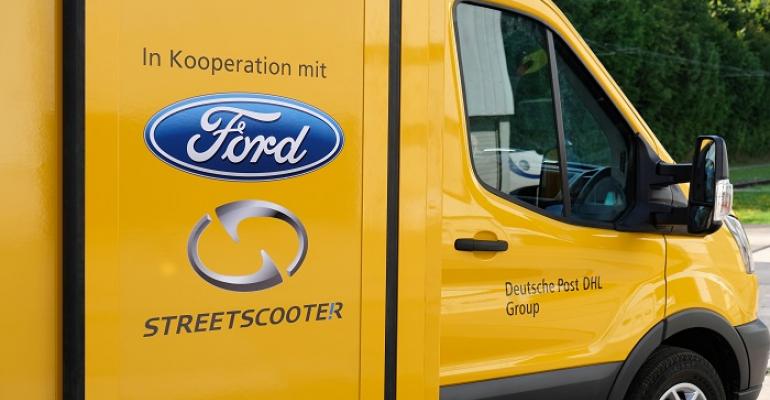FRANKFURT, Germany – With sales up 2.5% through July, Ford of Europe is enjoying growth this year, which its CEO credits to fresh product.
“We’re going into a period of refreshing pretty much all of our product range,” Steven Armstrong, president-Ford of Europe, tells media here during a roundtable at the 2017 Frankfurt auto show. “In a 2-year window we’ll have refreshed about 80% of our total volume: the Fiesta, updated the Transit, the Eco Sport – the Mustang, which we’re talking about here today.”
The Mustang shown here, with Ford’s 5.0L V-8 and 10-speed automatic transmission and a slew of available advanced safety technologies, already is on sale in the U.S. Since reintroducing the Mustang to Europe in 2015 after a 50-year absence, Ford says it has sold almost 30,000 copies of the American muscle car.
Armstrong says the automaker expects the good overall sales results to continue in the year’s final months as it begins to fill orders for the new Fiesta B-car, a top seller for the brand here but which saw a dip earlier this year in the transition from the old to new generation.
Ford is riding a wave in the Western European light-vehicle market, where sales were up 4.3% to 12.1 million units through July vs. like-2016, WardsAuto data shows.
Roelant de Waard, vice president-marketing, sales and service, says in the main 20 European markets the run rate is nearing 18 million and expected to stay at that level for 2018, giving the automaker a positive outlook for next year.
One matter Armstrong says is bedeviling Ford is trying to keep up with the European consumer shift away from diesel engines.
“The segmentation of diesel is generally declining…(and) I won’t lie to you: we’re having to work at it to do the adjustment (with our supply chain),” he says. “But we’re lucky to have a very fresh range of small (gasoline) engines.”
The European Automobile Manufacturers’ Assn. says from 2015 to 2016 the share of diesel-engine vehicle sales in the original 15 European Union countries fell from 52.1% to 49.9%. Picking up the slack most heavily were gasoline engines, with electrified powertrains comprising a smaller percentage of share.
While Armstrong doesn’t believe diesel will go extinct anytime soon – citing it as the “best choice” from a total cost of ownership perspective, as well as being the only current viable option for commercial vehicles – he does point out Ford is preparing for a future without diesels.
It recently began production of a large all-electric van using the Transit chassis with Deutsche Post DHL’s StreetScooter subsidiary, which makes a small electric van.
The result of the Ford partnership with DHL, the StreetScooter Work XL, is being made in Germany for DHL’s use. The two sides reportedly claim one van could limit annual carbon-dioxide emissions by five tons a year. By next year Ford and DHL plan to have built 2,500 vans, with some targeted for third-party sales.





